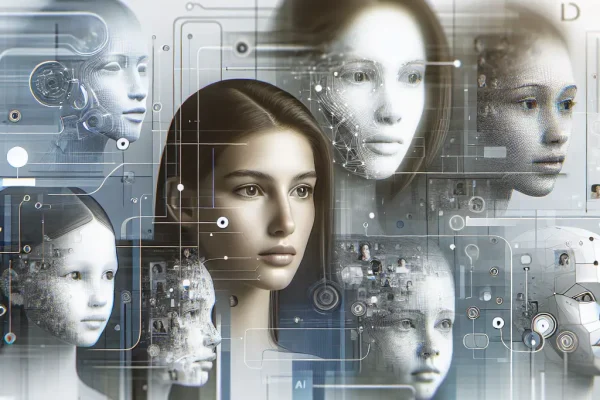Did you know? In June 2024, a class action lawsuit accused Apple of training its AI on pirated books—a move that could shake the foundations of creative ownership in the AI era. Much more than a legal spat, this case spotlights whether tech giants like Apple can be trusted with the world’s stories. If AI is built on copyright infringement, what does that mean for authors, users, and the very future of trust in technology?
As the AI boom accelerates, every digital interaction is shaped by how these systems learn—and what they learn from. The Apple AI lawsuit over pirated books isn’t just another tech headline. It asks questions now at the heart of society: Do tech giants respect intellectual property? Whose work is feeding AI? And ultimately, who owns our stories in an AI-driven world? As the battle lines are drawn, the outcome may redefine not just copyright law, but how creativity and technology co-exist for decades to come.
The Problem: What’s Happening With Apple’s AI and Copyright?
On June 4, 2024, Apple was hit with a major class action lawsuit, alleging it illegally used pirated books to train its AI models for offerings like Apple Intelligence (Reuters). According to the lawsuit, Apple and its partner, OpenAI, allegedly ingested thousands of copyrighted works—without permission—to boost the capabilities of their generative AI. The consequence: a wide-ranging legal and ethical storm implicating the heart of AI training practices.
- The lawsuit claims Apple’s AI models used entire books sourced from illegal online repositories. Authors argue this is a direct violation of copyright, bypassing both legal and financial compensation (The Verge).
- This case joins a wave of lawsuits (including against OpenAI and Meta) alleging that companies train large language models (LLMs) with copyrighted or pirated materials, raising the broader question: How does AI copyright infringement work?
At the core: Did Apple use pirated content for AI? Plaintiffs allege internal evidence shows AI outputs that closely mirror the language and structure of protected works. Apple, meanwhile, maintains that its AI development abides by all applicable laws and that the allegations are “baseless” (TechCrunch).
How AI Training on Copyrighted Materials Became Industry Norm
Modern generative AI models rely on vast datasets—often scraped from the open web, books, articles, even social media. While fair use laws provide some leeway, the scale and depth of data used have prompted mounting concerns, especially as outputs sometimes reproduce original texts nearly verbatim. The Apple class action lawsuit 2024 now puts the practice directly under the legal microscope.
Why It Matters: Human and Societal Impact
It’s not just about Apple or a handful of best-selling authors—this case impacts the cultural, economic, and ethical bedrock of how AI is built and used.
- Revenue for Creators: If AI can draw on pirated books, authors may lose income and incentive to create new work—weakening creative ecosystems globally.
- Trust in Technology: The case tests whether users can believe that AI outputs are ethically sourced, or if they’re built on a foundation of unauthorized appropriation.
- Wider Precedent: An unfavorable outcome could open the floodgates for further copyright abuse across all AI sectors, from news to visual arts to music.
As author Douglas Preston, a plaintiff in the case, argues: “Tech companies are vacuuming up tens of thousands of our books without permission or payment, simply because they can.”
Ethics of AI data sourcing have become dinner-table conversation: If your written work, artwork, or private social media posts can be taken and reconstituted by AI, where’s the line between learning and stealing?
Expert Insights & Key Data: Authors Sue Tech Companies Over AI
- Stat: Over 50% of published books ever written are estimated by the Authors Guild to be available illegally online.
- Lawsuit documents allege Apple used datasets that included more than 183,000 protected books.
- Record AI Copyright Litigation: Over a dozen lawsuits now target major tech companies (Meta, OpenAI, Stability AI, and now Apple) for unauthorized use of copyrighted material in AI (The Verge).
Industry experts are divided on where the line lies. Daniel Gervais, professor at Vanderbilt Law School, told Reuters, “If the data used to train an AI model is illegal to possess in the first place, then using it for commercial AI raises grave legal and ethical questions.”
Apple and OpenAI maintain their AI systems were built from “publicly available data,” but critics argue the definition of “public” is being stretched beyond its legal limits (TechCrunch).
How Does AI Copyright Infringement Work?
Most generative AIs function by learning statistical patterns—not direct copying. However, when the training data includes copyrighted or pirated works, AI can sometimes generate passages that are nearly identical to their sources. This creates a gray zone: is the AI “learning,” or is it plagiarizing? Legal experts stress that reproducing substantial, recognizable portions of copyrighted works without permission is infringement—whether by human or machine.
Future Outlook: What Happens Next for AI, Creators, and Tech Giants?
This lawsuit could define standards for AI training data transparency, compensation, and the legitimacy of using unlicensed content. Here’s what’s at stake over the next five years:
- Increased regulation: Expect rapid development of AI copyright standards, both in courts and in Congress.
- Potential multimillion (or multibillion) settlements: If plaintiffs succeed, penalties and required licensing deals could reshape the economics of AI development overnight.
- Greater transparency: Tech companies may soon be required to fully document and disclose AI training datasets—ending the era of “black box” sourcing.
- Uphill battle for smaller players: As rules tighten, only the best-resourced companies may be able to legally acquire enough rights-cleared data, raising questions of competition and fairness.
Infographic/Chart Suggestion: “AI Training Data: Legal vs. Illegal Content (2024 Estimates)”
Chart idea: Pie or bar chart comparing estimated proportions of licensed, public domain, and alleged pirated materials used by top 5 major AI developers in 2024.
Case Study: Comparing the Apple Lawsuit to Previous AI Copyright Disputes
| Case | Defendant | Alleged Use | Outcome (So Far) | Implications |
|---|---|---|---|---|
| Apple AI Class Action 2024 | Apple, OpenAI | Pirated books for LLM training | Ongoing | Could set precedent for all AI copyright cases |
| NYT vs. OpenAI | OpenAI | News articles for ChatGPT training | In court | Tests fair use boundaries for journalism |
| Getty Images vs. Stability AI | Stability AI | Images for generative art AI | Ongoing | Could impact all AI trained on art/photo datasets |
Related Links
- [External: MIT: Artificial Intelligence Research Highlights]
- [External: WSJ: Authors Sue Tech Over AI Copyright]
- [External: NASA: AI Research & Ethics at NASA]
FAQ: Apple AI Lawsuit Over Pirated Books & AI Copyright
Did Apple really use pirated content for AI?
The lawsuit filed in June 2024 alleges that Apple and OpenAI sourced pirated books to train AI models. Apple denies wrongdoing and says its data practices comply with the law (Reuters).
How does AI copyright infringement work?
Copyright infringement occurs if AI models are trained on protected content without permission and generate outputs that closely resemble the originals. This is a complex legal area rapidly evolving with technology.
What are the implications of unauthorized data in AI training?
Using unauthorized data can undermine creators’ rights, lead to legal liability for companies, erode public trust, and risk setting dangerous precedents for future AI system developments.
Are other tech companies facing similar lawsuits?
Yes. OpenAI, Meta, and Stability AI all face copyright lawsuits over using protected work for AI training, with outcomes likely to impact the whole technology sector (The Verge).
What does this mean for the future of AI and copyright?
This sets the stage for a new era in copyright law, potentially requiring tech firms to license or clear all data used for AI. Authors and artists could finally see payment for their contributions—or creative industries may see further disruption.
Conclusion: A Legal Battle That Will Define the Future of AI
The Apple AI lawsuit over pirated books isn’t just about one company’s practices—it’s about how technology should treat creative labor, trust, and cultural legacy in the age of generative AI. As courts wrestle with these questions, authors, tech companies, and users alike are watching for a roadmap to ethical, sustainable AI development. Will this be the moment when digital innovation and human rights finally find common ground?
The stories AI tells tomorrow will be shaped by the battles we fight over copyright today.


